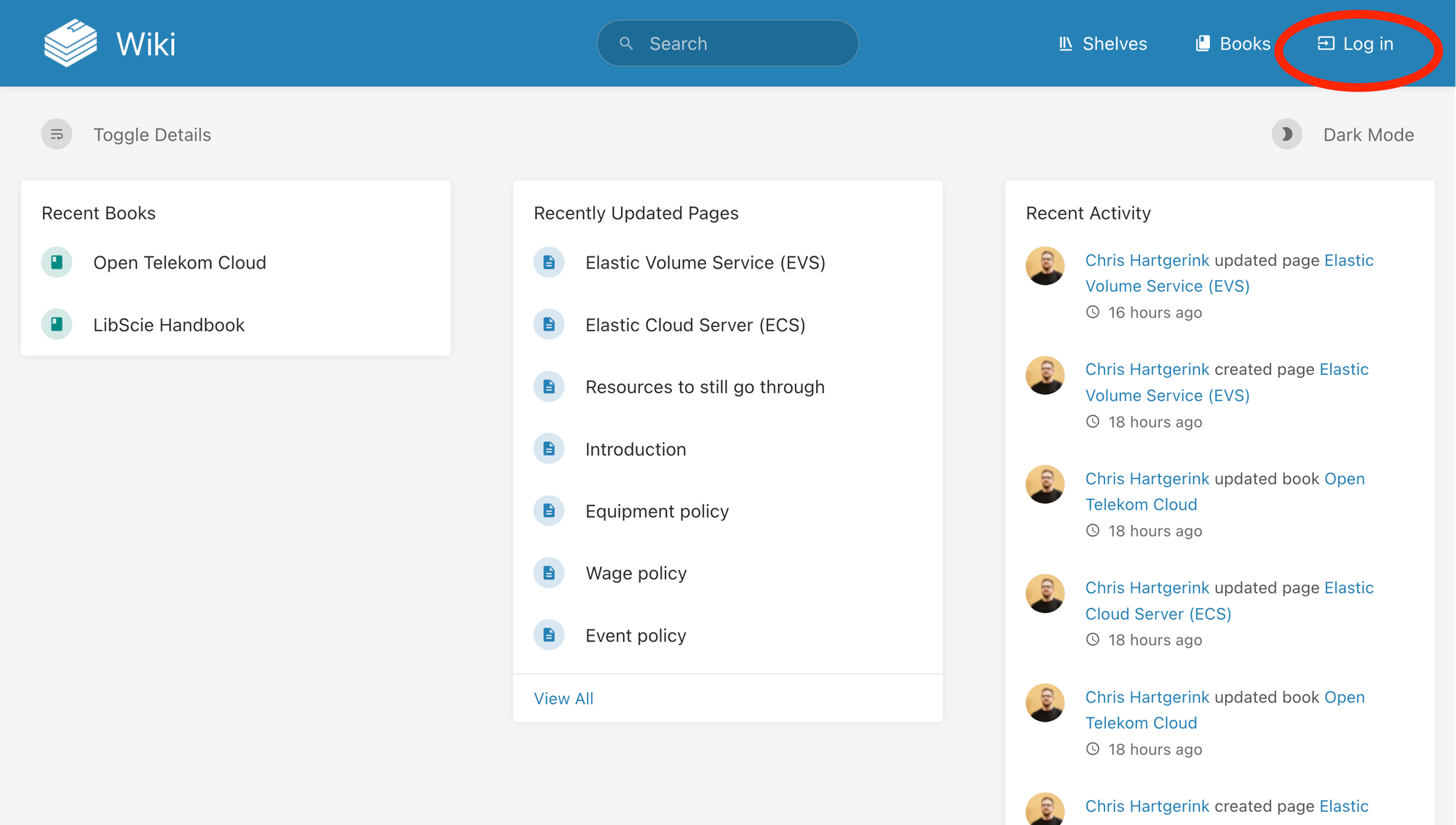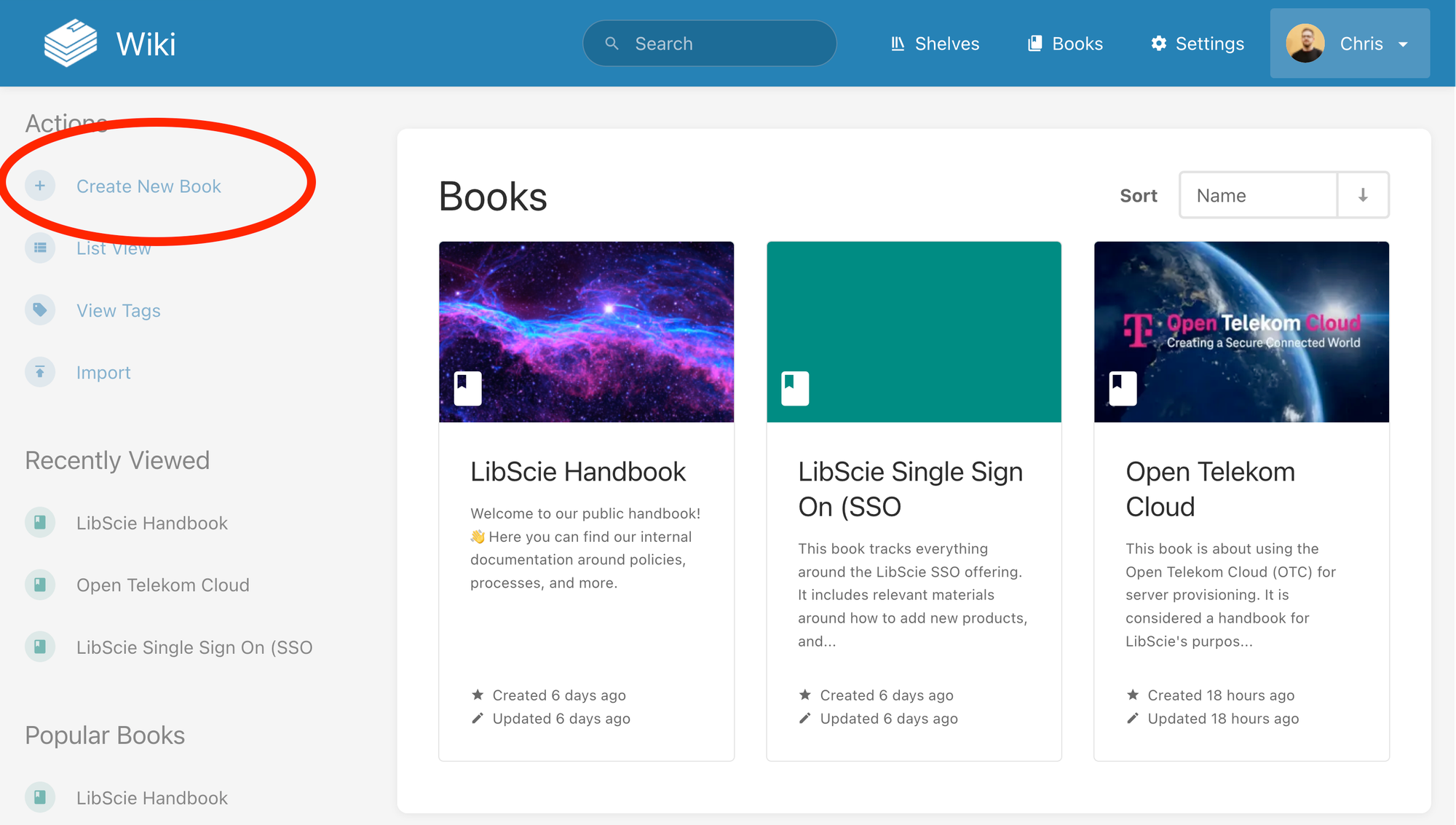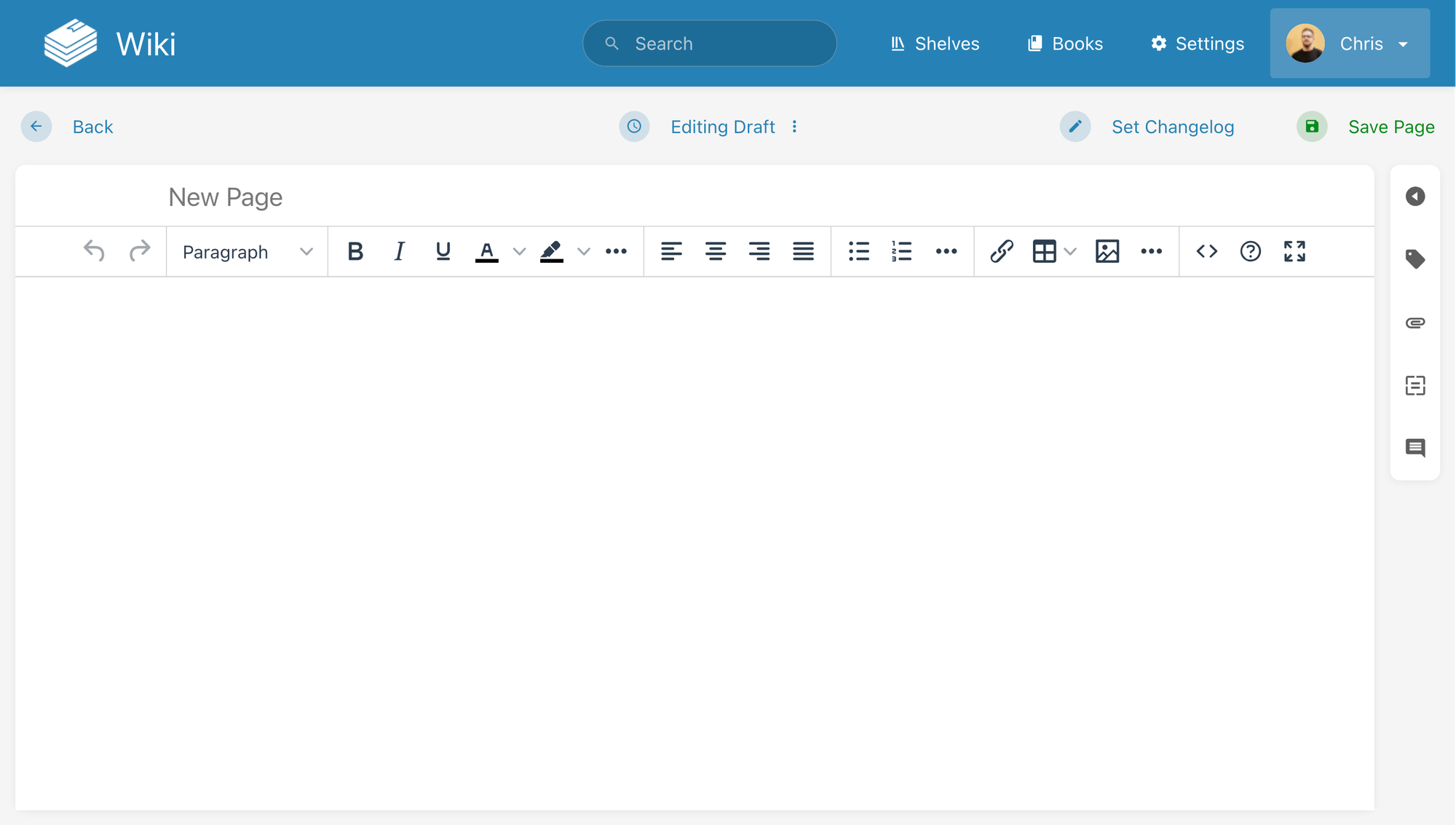Today, we add the fourth service hosted on our European Stack: A shared wiki for your knowledge management. With our wiki service (https://wiki.libscie.org) you can write your private or public knowledge management systems, without worrying about the tech behind it.
Our Single Sign-On (SSO) services are part of our digital autonomy strategy. All our SSO services are hosted on a European stack, so that all of the data stays within the European jurisdiction. We offer small tech for big problems – reducing your reliance on (American) Big Tech.
Why use a wiki?
When working alone, a notebook often is enough to ensure knowledge is not lost from one day to the next. A paper notebook can be the basis of a rigorous private knowledge system. Digital services include Notion, Obsidian, or one of the other productivity tools on offer today. A wiki is another digital notebook option.
When you collaborate with others, a shared knowledge base is a necessity for shared understanding. If everyone creates their own notes, it is easy for everyone to build their own unique understanding. This can lead to friction when alignment is based on different understandings. In a collaboration, a shared space allows for co-creation and iteration. Refining knowledge helps identify missing or unclear knowledge.
The main benefit of using a wiki is as a shared digital notebook to help organize shared knowledge.
A wiki is for writing things down, organizing it, and revising it as the knowledge changes. This means that you manage who is allowed to edit your wiki, what your wiki is about, and what the content is.
How to use our Wiki service?
After signing up for a free seven day trial, you can log in directly on https://wiki.libscie.org. Our Wiki service runs on Bookstack, which uses books as the main organizing tool. Each book is a completely separated wiki, with separate permissions, pages, and chapters. Anyone can view public books – we offer our own Open Telekom Cloud book for example.

Everyone with a LibScie SSO account, is a contributor to the Wiki – meaning you can create and edit your own content. After logging in, you create a book to start managing your knowledge. For example, if you want to create a lab manual to highlight onboarding procedures and culture, you create a book with an informative title. Nobody else can view or edit your content outside of the support context.

After creating your book, you can create chapters and pages. Pages are the core of your book, and chapters can be used to organize the pages. Each page presents a rich text editor, which can be edited by one individual at a time. Every time you save the page, a new version is created. That history can be browsed and restored at any time.

Reducing your reliance on Big Tech
Maybe you use Notion, OneNote, or another knowledge management system today. These are great and established services – if you read all the way here, you may have some concerns around using them and concerns about your productivity if you switch them out. We get it! We keep dealing with these questions too and migration is not a small thing.
So we ask you: Do you want to support efforts to provide viable alternatives to Big Tech? If so, why not try out our wiki service for free. If you like it, it only costs €3.99/month per person (team discounts available). The upside? If you do not like it, you can keep on using Big Tech. We would love to hear your thoughts either way, because we are continuously learning what it takes to be more digitally autonomous too 😄


